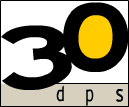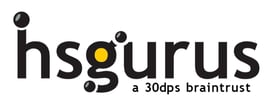New Resource: SEO Myths Debunked by HubSpot
 If there’s one aspect of digital marketing that changes faster than any other, it may be search engine optimization (SEO). While the goal of the search engines remains the same—to reward websites that provide content that searchers want and need—the rules they build into their algorithms seem to be in almost constant flux. So what do you need to know in 2018?
If there’s one aspect of digital marketing that changes faster than any other, it may be search engine optimization (SEO). While the goal of the search engines remains the same—to reward websites that provide content that searchers want and need—the rules they build into their algorithms seem to be in almost constant flux. So what do you need to know in 2018?
Well, if you’ve regularly read our blog, you know I’m a big believer in HubSpot. One of the reasons I’m such a fan is that HubSpot does an exceptional job of not only providing the most intuitive and effective tools, but of supporting partners and customers with great information.
And they’ve done it again with a new guide titled “20 SEO Myths You Should Leave Behind in 2018.” In typical HubSpot fashion, they cut right to the chase, providing marketers the information they need in order to fine-tune their SEO strategy. Not only will the information help you do a better job of scoring points with Google and other search engines, but just as importantly, it will help you stop wasting time on tactics that may no longer work.
Highlights from HubSpot’s Guide on SEO Myths
I encourage you to check out the guide yourself, but here are few myths that caught my eye:
Myth #2: “More links are better than more content.”
Not true, says HubSpot. There was a time when the quantity of links to your site carried significant weight. But today, the search engines are looking for quality rather than quantity. And, they have always (and will always) view great website content as one of the keys to a positive user experience. As the guide observes: “If you have budget to invest in your website, I would say, ‘Hire someone to write for you,’” rather than hiring someone to build links for you.
Myth #7: “Keyword optimization is THE key to SEO.”
Getting exact matches of your keywords into your content used to be a critical part of SEO strategy. But search has gotten smarter and now can better “understand” what content is about based on sets of related words rather than specific ones. This is especially important now that people are doing more voice-based searching and using conversational language rather than a few words or short phrases.
Myth #10: “My homepage needs a lot of content.”
The most effective homepages are those that clearly and concisely explain who you are, what you do, what is unique or special about your offering, where you are located (if you do business locally), and what action you want a visitor to take next. That’s what a person wants to see on your homepage—and again, the search engines are getting much better at thinking like a person.
That’s just a taste of what’s in HubSpot’s guide. I found the piece very interesting and enlightening.
Staying Ahead of the Marketing Curve
As a leading provider of content marketing and marketing automation guidance (and as a certified HubSpot Agency Partner) in Colorado Springs, CO, and Springfield, MO, we not only help organizations get their inbound strategy and operations up and running, but we also stay on top of our ever-evolving industry so that we can keep our clients ahead of the curve.
How can we do that for you? Let’s discuss where you are vs. where you want to be with your content marketing program. Give us a call!


